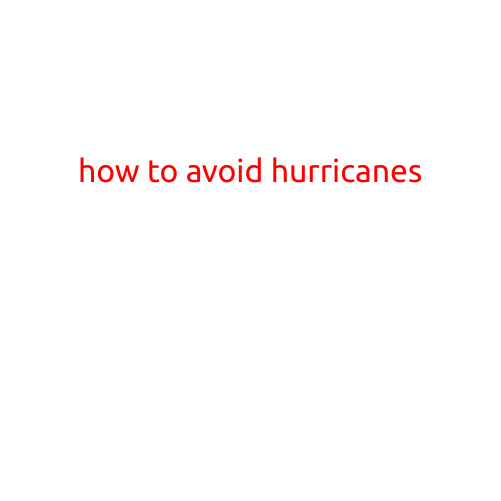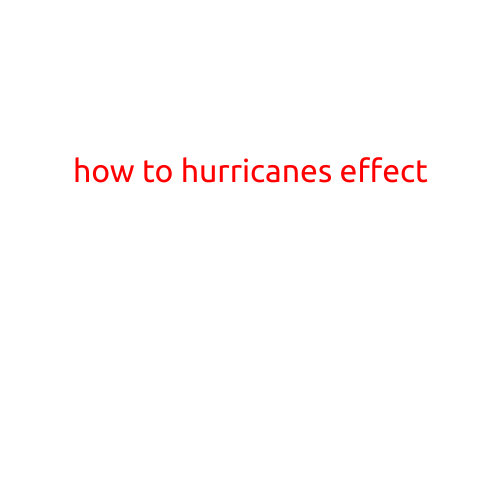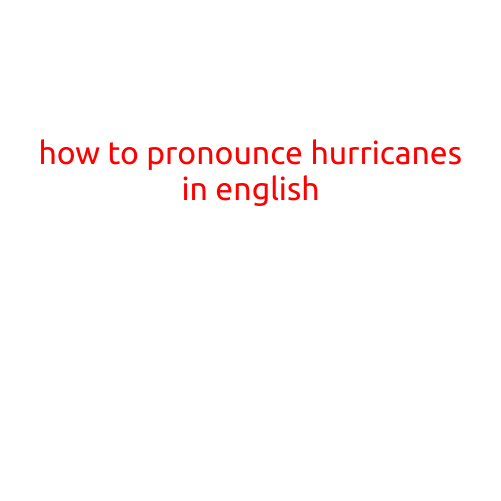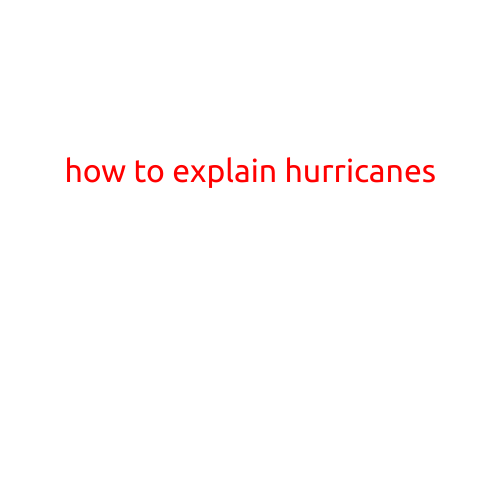
How to Avoid Hurricanes: Preparation is Key
Hurricanes are powerful storms that can cause devastating damage to homes, businesses, and communities. With the Atlantic hurricane season upon us, it’s essential to take proactive steps to prepare and minimize the risk of injury or loss. In this article, we’ll provide you with a comprehensive guide on how to avoid hurricanes, including tips on preparation, safety measures, and what to do during and after a hurricane.
Preparation is Key
The best way to avoid the impact of a hurricane is to prepare well in advance. Here are some essential steps to take:
- Create a Hurricane Plan: Develop a plan with your family that includes a communication strategy, evacuation routes, and emergency contact numbers.
- Stock Up on Supplies: Store a minimum of 3 days’ worth of non-perishable food, water, first aid kits, flashlights, batteries, and medications.
- Secure Your Home: Trim trees, secure outdoor furniture and decorations, and cover windows to prevent damage.
- Stay Informed: Monitor weather updates and sign up for emergency alerts from local authorities.
Safety Measures
When a hurricane is forecasted to hit your area, take the following safety measures:
- Evacuate: If instructed to do so by local authorities, leave your home and seek shelter in a safe location.
- Stay Indoors: Avoid traveling and stay indoors during the storm to minimize risk of injury or exposure to hazardous weather conditions.
- Unplug Electronics: Unplug sensitive electronics and appliances to protect them from power surges.
- Charge Your Devices: Charge your phone, laptop, and other essential devices in case the power goes out.
During a Hurricane
When a hurricane is happening, follow these steps:
- Stay Away from Windows: Avoid windows and exterior walls to minimize the risk of injury from breaking glass or debris.
- Avoid Flooded Areas: Avoid walking or driving through flooded areas, as they can be contaminated with sewage, chemicals, or other hazardous materials.
- Follow Instructions: Follow evacuation instructions and shelter-in-place guidelines from local authorities.
- Stay Safe: Avoid downed power lines, sharp debris, and other hazards that can cause injury.
After a Hurricane
When the storm has passed, be cautious and follow these steps:
- Assess Damage: Assess damage to your home and property, and take photos for insurance purposes.
- Avoid Hazards: Avoid entering homes or buildings with potential hazards, such as fallen power lines, sharp debris, or structural damage.
- Use Generators Safely: Use generators in well-ventilated areas to prevent carbon monoxide poisoning.
- Report Damage: Report damage to your home and property to your insurance company and local authorities as soon as possible.
Additional Tips
- Stay Calm: Stay calm and patient, and prioritize your safety and the safety of those around you.
- Be Prepared: Be prepared for extended power outages and plan accordingly.
- Keep Important Documents: Keep important documents, such as insurance policies and identification, in a safe and easily accessible location.
In conclusion, preparation is key to avoiding the impact of a hurricane. By following these tips, you can minimize the risk of injury or loss and ensure your safety and the safety of those around you. Remember to stay informed, stay safe, and stay prepared.





